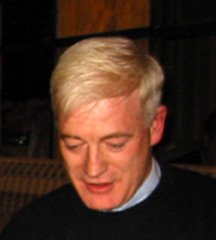
Clinical Pastoral Education
In the 1920’s theological education began to be profoundly reshaped by the medical model of education which itself was being transformed in response to the renowned Flexner Report of 1910.
Theological education, which was at that point in history almost entirely academic, theoretical, and forensic began to change just as medical education was changing. Pastors began using the mentorship approach to learning “at the bedside” in contact with living persons and their problems.
Thus, began the art and science of Clinical Pastoral Training or Education, the disciplined examination of specific cases of pastoral care and counseling, and the application of the clinical method to the work of ministry.
Clinical Pastoral Education has come to be known as the study of persons and their problems of relating and structures of meaning. This training has become accepted as a formative component in the preparation of persons for religious ministry.
Anton Boisen (1876-1965) was the individual who most provided the initial impetus toward making this change in theological education. Motivated by the urgency to understand his own psychotic episodes and their religious and developmental implications, Boisen inaugurated and institutionalized this new component in theological education known as Clinical Pastoral Education (CPE).
At first CPE attracted only a few selected individuals, most of whom sought Boisen because of his and their dissatisfaction with normative theological education. Subsequently, CPE has burgeoned to such an extent that many theological schools require an introductory unit as a prerequisite for graduation.
Clinical Pastoral Education in General:
Clinical Pastoral Education (CPE) programs provide an opportunity for ministers, seminarians and lay people to develop pastoral competency within a particular pastoral setting (usually a hospital, parish, hospice, retirement home, etc.), and seeks to foster the pastors own self-awareness as a pastoral care-giver.
The CPE approach to training is based upon an "action-reflection" model of learning. Pastoral interns function as ecumenical chaplains providing pastoral care on assigned areas and use their experience in pastoral encounters as a basis for their learning.
While seminary settings provide an academic environment for the study of pastoral theology in contrast the CPE center provides the clinical basis for learning.
For more information about CPE programs at The University of Arkansas for Medical Sciences contact: George Hankins Hull 501-686-6888